#brominated vegetable oil
Explore tagged Tumblr posts
Text
ScienceAlert: FDA to Finally Outlaw Soda Ingredient Prohibited Around The World
An ingredient once commonly used in citrus-flavored sodas to keep the tangy taste mixed thoroughly through the beverage could finally be banned for good across the US.

The FDA proposed in November to revoke the registration of a modified vegetable oil known as BVO in the wake of recent toxicology studies that make it difficult to support its ongoing use.
"The proposed action is an example of how the agency monitors emerging evidence and, as needed, conducts scientific research to investigate safety related questions, and takes regulatory action when the science does not support the continued safe use of additives in foods," James Jones, FDA deputy commissioner for human foods, explained when announcing the proposal.
BVO, or brominated vegetable oil, has been used as an emulsifying agent since the 1930s to ensure citrus flavoring agents don't float to the top of sodas. Sticking a dozen bromine atoms to a triglyceride creates a dense oil that floats evenly throughout water when mixed with less dense fats.
Yet that's not BVO's only trick. Animal studies have strongly implied the compound can slowly build up in our fat tissues. With bromine's potential ability to prevent iodine from doing its all-important work inside the thyroid, health authorities around the world have been suspicious of the emulsifier's risks for decades.
In fact, BVO is already banned in many countries, including India, Japan, and nations of the European Union, and was outlawed in the state of California in October 2022 with legislation due to take effect in 2027.
Yet the FDA has been slow to convince. In the 1950s, the agency regarded the ingredient as generally recognized as safe (GRAS); an official classification afforded items that have either been appropriately tested or – for ingredients in common use prior to 1958 – don't appear to be harmful.
That changed the following decade when questions were raised over its possible toxicity, prompting the FDA to overturn its GRAS classification for BVO and temporarily limit its use to relatively small concentrations of no more than 15 parts per million exclusively in citrus-flavored drinks.
Data on the risks posed by even these small amounts of BVO over time hasn't been easy to collect, relying heavily on long-term studies that re-evaluate health effects in a significantly-sized sample of people. Yet the evidence has been slowly mounting.
A UK study in the 1970s found bromine was building up in human tissues, with animal studies linking high concentrations of BVO with heart and behavioral problems.
It's taken time, and a number of further studies, but on the back of more recent animal studies based on relative concentrations of BVO humans are likely to ingest, the FDA is finally convinced there is sufficient evidence to ban its use altogether.
Most major soda drink companies are fortunately ahead of the game. PepsiCo and Coca-Cola Co. have been phasing the ingredient out of their products over the past decade.
"Over the years many beverage makers reformulated their products to replace BVO with an alternative ingredient, and today, few beverages in the US contain BVO," said Jones.
The ban could be a sign of more things to come, with Jones announcing the agency is reviewing regulations that authorize the use of certain food additives, with a view to automatically prohibit the approval of any food coloring agents found to cause cancer in humans or animals, making for a more nimble bureaucratic process.
A final call on the FDA's reclassification of BVO still needs to go through a lengthy review process that will take time to complete.
With suitable alternatives to BVO already being used to make citrus drinks around the world taste tangy down to the very last drop, the ingredient isn't likely to be missed.
#BVO#FDA to Finally Outlaw Soda Ingredient Prohibited Around The World#brominated vegetable oil#world ban#unhealthy food additives#citrus soda#coloring agents#bad food additives#poisons
5 notes
·
View notes
Text
The FDA will no longer allow this potentially harmful additive found in some sodas
The US Food and Drug Administration will no longer allow the use of brominated vegetable oil in food products, the agency said Tuesday. Continue reading The FDA will no longer allow this potentially harmful additive found in some sodas

View On WordPress
0 notes
Text
The FDA is considers ban on Soda ingredient.

The Food and Drug Administration (FDA) has suggested banning a food additive commonly found in sodas, citing evidence that it is no longer safe to consume.
Brominated vegetable oil (BVO) is an additive used in sodas to keep the citrus flavouring from separating and floating to the top. Due to health concerns, the beverage industry has gradually phased out BVO, which was once widely utilised.

According to recent research, BVO use is associated to bromine bioaccumulation as well as detrimental thyroid consequences.
The FDA's action comes after California became the first state to prohibit the chemical in October. The government stated that it was evaluating other additives as well, including three more substances prohibited by current California legislation.
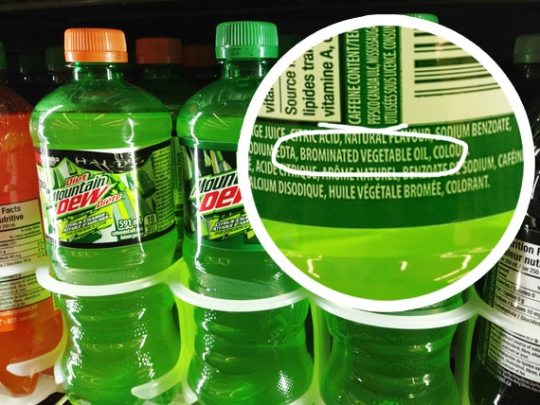
For many people, enjoying a refreshing soda is a guilty pleasure. However, recent news from the Food and Drug Administration (FDA) may make you think twice before taking a sip. The FDA is currently considering the prohibition of an ingredient that has long been used in popular sodas - brominated vegetable oil (BVO). This controversial ingredient has been under scrutiny for its potential health risks, and if the ban is approved, it could mean a big change for the soda industry. Read on to learn more about BVO and the potential impact of this proposed ban.
What's Brewing at the FDA - A Glimpse Into the Decision-Making
As soda lovers, it's important for us to stay informed about the latest developments in the beverage industry. That's why we're diving into what's happening at the Food and Drug Administration (FDA) and their potential ban on brominated vegetable oil (BVO) in sodas.
The FDA is responsible for ensuring the safety of our food and beverages, and they're currently considering the prohibition of BVO due to concerns about its potential health risks. This decision-making process is complex and involves extensive research and analysis. The FDA evaluates scientific evidence, conducts studies, and consults with experts in order to make an informed decision.
It's important to note that the FDA's primary goal is to protect the public's health and safety. They carefully weigh the potential risks and benefits before implementing any new regulations. They consider the impact on consumers, the industry, and the overall public health.
While we don't have all the details on the FDA's decision-making process, it's clear that they are prioritizing safety and health. As consumers, we can take comfort in knowing that the FDA is actively working to ensure the products we consume are safe. Stay tuned to learn more about BVO and how this potential ban could impact the soda industry.
Unmasking the Culprit – An Insight into BVO
Brominated vegetable oil (BVO) – it may sound harmless, but this ingredient has been at the center of controversy in the soda industry. BVO is an emulsifier that helps keep the flavor oils in soda evenly distributed. However, what many people don't know is that BVO contains bromine, a chemical compound that has been linked to potential health risks.
So, what exactly is bromine and why is it a concern? Bromine is a halogen element that is commonly used in flame retardants. It has been associated with adverse effects on the nervous system, thyroid, and reproductive system. While the amount of bromine in BVO may be relatively low, there are still concerns about long-term exposure and potential health consequences.
Furthermore, BVO has been banned or restricted in several countries, including the European Union and Japan, due to safety concerns. These countries have recognized the potential risks associated with this ingredient and have taken measures to protect their consumers.
With all of this information, it's clear that BVO is not something we should take lightly. The potential health risks and the fact that it has been banned in other countries raise red flags. As consumers, it's important for us to be aware of what we are putting into our bodies and make informed choices about the products we consume. So, say goodbye to harmful ingredients and join the movement to ban BVO in soda!
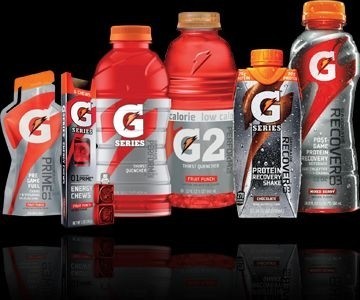
The Impact on Your Fizzy Fix - How Banning BVO will Change Soda
Get ready for a soda revolution! If the FDA decides to ban brominated vegetable oil (BVO) in sodas, it's going to have a major impact on your favorite fizzy fix. BVO is commonly used as an emulsifier to keep flavor oils evenly distributed in soda, but its potential health risks have sparked concern. So, what changes can you expect if BVO gets the boot?
Firstly, you can say goodbye to that cloudy appearance in your soda. BVO is responsible for giving some sodas their hazy, opaque look. Without BVO, your soda will have a more transparent appearance, making it visually more appealing.
Secondly, you might notice a change in taste. BVO can have a slight impact on the flavor of sodas, so without it, the taste could be altered. Some people might prefer the cleaner, purer flavor without the presence of BVO.
Finally, and perhaps most importantly, the removal of BVO means a healthier option for consumers. The potential health risks associated with bromine exposure will no longer be a concern when enjoying your favorite soda. You can indulge guilt-free knowing that harmful ingredients have been eliminated
Safety Above All - The Benefits of This Possible Prohibition
When it comes to our health, safety should always be the top priority. That's why the potential prohibition of brominated vegetable oil (BVO) in sodas by the FDA is such a positive development. By removing this controversial ingredient from our favorite fizzy drinks, we can enjoy them without worrying about the potential health risks associated with bromine exposure.
The benefits of this possible prohibition are significant. First and foremost, it means a safer beverage option for consumers. The potential risks to our nervous system, thyroid, and reproductive system that have been linked to bromine will no longer be a concern. We can indulge in our guilty pleasure without the guilt, knowing that harmful ingredients have been eliminated.
Furthermore, the removal of BVO will lead to a cleaner and purer taste in our sodas. Some people may have noticed a slight impact on flavor due to BVO, and without it, we can enjoy a more authentic and enjoyable taste experience.
Finally, this prohibition will encourage the soda industry to find alternative and safer ways to achieve the desired consistency and appearance of their products. It will push companies to innovate and create beverages that prioritize consumer health and safety.
Overall, the potential ban on BVO in sodas is a step in the right direction. It puts safety above all else and ensures that our favorite fizzy drinks can be enjoyed without compromising our health.
The Market Reaction - Will Our Favorite Sodas Survive?
The potential prohibition of brominated vegetable oil (BVO) in sodas has raised many questions about the future of our favorite fizzy drinks. Will they survive without this controversial ingredient? The market reaction is uncertain, but one thing is for sure – the soda industry will have to adapt to meet the demands of health-conscious consumers.
While some may argue that the removal of BVO could have a negative impact on the taste and appearance of sodas, there is an opportunity for innovation and creativity. Soda companies can explore alternative ingredients and techniques to achieve the same consistency and visual appeal that BVO provided.
In fact, this prohibition may even lead to the development of new and improved beverages that prioritize consumer health and safety. Imagine enjoying a soda that not only tastes great but also doesn't come with the potential risks of bromine exposure.
Consumers have become more conscious about what they put into their bodies, and companies that adapt to these changing preferences will thrive in the market. It's an opportunity for the soda industry to show their commitment to consumer well-being and create products that align with the growing demand for healthier options.
So, will our favorite sodas survive without BVO? Absolutely! With the right adjustments and a focus on consumer needs, the soda industry can flourish in a post-BVO world. It's time to embrace change and enjoy our fizzy fix without compromising our health.
#brominated vegetable oil#brominated vegetable oil (bvo) (e443)#dangerous ingredients in food#banned ingredients#dangerous food ingredients#hidden ingredients in food#food ingredients banned in other countries#ingredients banned in other countries#ingredients in food that can kill you#mountain dew ingredients#deadly ingredients in food#dangers of partially hydrogenated oil#toxic ingredients in food#food ingredients to avoid#food ingredients you should avoid
0 notes
Text
brominated vegetable oil
Even its name sounds disgusting
0 notes
Text
The Best News of Last Week - March 18
1. FDA to Finally Outlaw Soda Ingredient Prohibited Around The World
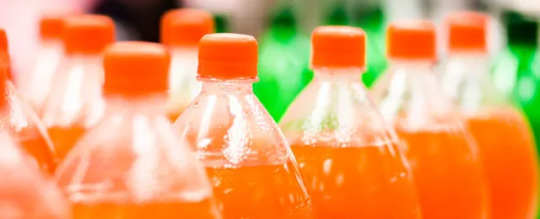
An ingredient once commonly used in citrus-flavored sodas to keep the tangy taste mixed thoroughly through the beverage could finally be banned for good across the US. BVO, or brominated vegetable oil, is already banned in many countries, including India, Japan, and nations of the European Union, and was outlawed in the state of California in October 2022.
2. AI makes breakthrough discovery in battle to cure prostate cancer

Scientists have used AI to reveal a new form of aggressive prostate cancer which could revolutionise how the disease is diagnosed and treated.
A Cancer Research UK-funded study found prostate cancer, which affects one in eight men in their lifetime, includes two subtypes. It is hoped the findings could save thousands of lives in future and revolutionise how the cancer is diagnosed and treated.
3. “Inverse vaccine” shows potential to treat multiple sclerosis and other autoimmune diseases

A new type of vaccine developed by researchers at the University of Chicago’s Pritzker School of Molecular Engineering (PME) has shown in the lab setting that it can completely reverse autoimmune diseases like multiple sclerosis and type 1 diabetes — all without shutting down the rest of the immune system.
4. Paris 2024 Olympics makes history with unprecedented full gender parity

In a historic move, the International Olympic Committee (IOC) has distributed equal quotas for female and male athletes for the upcoming Olympic Games in Paris 2024. It is the first time The Olympics will have full gender parity and is a significant milestone in the pursuit of equal representation and opportunities for women in sports.
Biased media coverage lead girls and boys to abandon sports.
5. Restored coral reefs can grow as fast as healthy reefs in just 4 years, new research shows

Planting new coral in degraded reefs can lead to rapid recovery – with restored reefs growing as fast as healthy reefs after just four years. Researchers studied these reefs to assess whether coral restoration can bring back the important ecosystem functions of a healthy reef.
“The speed of recovery we saw is incredible,” said lead author Dr Ines Lange, from the University of Exeter.
6. EU regulators pass the planet's first sweeping AI regulations

The EU is banning practices that it believes will threaten citizens' rights. "Biometric categorization systems based on sensitive characteristics" will be outlawed, as will the "untargeted scraping" of images of faces from CCTV footage and the web to create facial recognition databases.
Other applications that will be banned include social scoring; emotion recognition in schools and workplaces; and "AI that manipulates human behavior or exploits people’s vulnerabilities."
7. Global child deaths reach historic low in 2022 – UN report

The number of children who died before their fifth birthday has reached a historic low, dropping to 4.9 million in 2022.
The report reveals that more children are surviving today than ever before, with the global under-5 mortality rate declining by 51 per cent since 2000.
---
That's it for this week :)
This newsletter will always be free. If you liked this post you can support me with a small kofi donation here:
Buy me a coffee ❤️
Also don’t forget to reblog this post with your friends.
782 notes
·
View notes
Text
Writing Notes: Poison
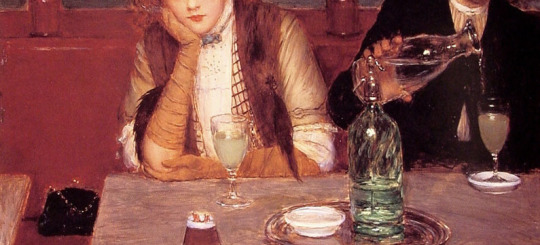
References (Forms, Actions & Examples of Poison; Route of Administration; Some Symptoms; What to do if a Poisoning Happens)
400 years back, Paracelsus stated that, “All substances are poisons; there is none which is not a poison.”
If the right dose is taken, it could become a remedy, otherwise poisonous.
Poison - a substance which when administered, inhaled or swallowed by living organism causes ill effects on the body. It is defined also as a medicine in a toxic dose. Toxic substance may be solid, liquid, gas or any environmental agent.
Forms of Poison
Physical form: Gaseous/volatile/vaporous forms of poisons act faster than liquid poisons as they are quickly absorbed. Similarly, liquid poisons act faster than solid poisons. Gaseous or volatile > liquid > solid. For solid poisons, powdered poisons act quickly than the lumps. For example, there are certain seeds that escape the gastrointestinal tract as they are solid, but when crushed, they can be fatal. For solids: powdered > lumps
Chemical form: Few substances like mercury or arsenic are not poisonous as they are insoluble and cannot be absorbed when they are in combination with other substances like mercuric chloride, arsenic oxide, etc. In other cases, the action is vice versa. For example, there are some substances that become inert in combination with silver nitrate and hydrochloric acid and are deadly and poisonous when present in pure forms.
Mechanical combination: The effect of poisons is significantly altered when they are combined with inert substances.
Action of Poisons
Local action: Direct action on the affected site of the body. Examples include irritation and inflammation in strong mineral acids and alkalis, congestion and inflammation by irritants, the effect on motor and sensory nerves, etc.
Remote action: Affects the person due to absorption of that poison into the system of that person. For example, alcohol is absorbed in the system and then it affects the person.
Local and remote actions: Some poisons can affect both local and remote organs. Thus, they not only affect the area with contact to the poison but also cause toxic effect after absorption into the system.
General action: The absorbed poison affects more than one system of the body, for example, mercury, arsenic, etc.
Route of Administration
The route of administration is the path through which a drug, toxin, or poison is taken or administered into the body of a person which is distinguished by the location where any drug is applied. It is mostly classified on the basis of its target:
Topical—has a local effect
Enteral—has a wide effect, i.e., affect the whole system
Parental—follows a systemic action
Poisons are given or taken so that death can occur at once by shock due to stoppage of body’s vital systems.
Route of administration plays a very important role in determination of death by poison as time in which death occurs are fastest in inhaled poisons, relatively slow in injected and lastly when ingested orally.
Some Symptoms
Sore throat
Trouble breathing
Drowsiness, irritability, or jumpiness
Nausea, vomiting, or stomach pain without fever
Lip or mouth burns or blisters
Unusual drooling
Strange odors on breath
Unusual stains on clothing
Seizures or unconsciousness
Examples
Poisons Based on Mode of Action
1. Corrosive poisons
Strong Acid - sulfuric acid, nitric acid, hydrochloric acid
Strong Base - sodium hydroxide, potassium hydroxide, ammoniumhydroxide
2. Irritant poisons
(a) Inorganic:
Metallic - lead, arsenic, mercury, antimony, copper, zinc
Non-metallic - chlorine, bromine, iodine
(b) Organic:
Vegetable - croton oil, castor oil
Animal - snake venom, scorpion venom, spider venom
(c) Mechanical: powder glass, diamond dust
3. Neurotic poisons
Cerebral - alcohol, opium, barbiturates, benzodiazepines
Spinal - strychnine
Peripheral - curare
4. Cardiac poisons
5. Asphyxiants - CO2, CO
Poisons Based on Medicolegal Classification
Homicidal poisons - aconite, abrus precatorius, strychnos nux vomica
Suicidal poisons - opium, barbiturate, organophosphorous, organochloro compounds
Accidental poisons - snake bite, CO, dhatura's seeds as it resembles capsicum seeds
Abortifacient poisons - quinine, calotropis
Stupefying agents - dhatura, chloral hydrate
Agents used to cause body injury - corrosive acids
Cattle poison - abrus precatorius, calotropis
Used for malingering - semicarpus anacardium
Poisons Based on Toxico-analytical Classification
1. Gaseous poisons: methanol, ethanol, benzene, toluene, acetone
2. Volatile substances: ethane, butane
3. Organic Non-volatile substances:
Drugs - opiates and synthetic narcotics, sedatives and hypnotics, stimulants, depressants
Pesticides - insecticides, fungicides, herbicides, rodenticides, nematocides
4. Metallic poisons: arsenic, lead, mercury, antimony, zinc, copper
5. Anion poisons: bromide, cyanide, fluoride, hypochlorite, nitrate, phosphate, sulfide, sulfate
Poisons Based on Physical State
1. Solid: lead, arsenic, mercury
2. Liquid:
Organic - ethanol, methanol, chloroform, acetone
Inorganic - liquid ammonia, liquid sulfur dioxide
3. Gaseous: carbon dioxide, carbon monoxide
Poisonous Fumes or Gases
In the home, poisonous fumes can be emitted from the following sources:
A car running in a closed garage
Leaky gas vents
Wood, coal, or kerosene stoves that are not working properly
Mixing bleach and ammonia together while cleaning, which makes chloramine gas
Strong fumes from other cleaners and solvents
Common Household Products
Oily hydrocarbon products are thin and slippery and can easily suffocate if the substances are drawn into the lungs when ingested. The products can cause chemical pneumonia by coating the inside of the lungs. Products that are required to have a safety lid include:
Baby oils
Sunscreens
Nail enamel dryers
Hair oils
Bath, body, and massage oils
Makeup removers
Some automotive chemicals (gasoline additives, fuel injection cleaners, and carburetor cleaners)
Cleaning solvents (wood oil cleaners, metal cleaners, spot removers, and adhesive removers)
Some water repellents containing mineral spirits used for decks, shoes, and sports equipment
General-use household oil
Gun-cleaning solvents containing kerosene
Oil products that are thicker and more "syrupy" are not as problematic, since they are not as easily inhaled into the lungs.
What to do if a poisoning happens
Swallowed poisons
Stay calm, act quickly, and follow these guidelines:
Get the poison away
If the substance is still in the mouth, make them spit it out or remove it with your fingers (keep this along with any other evidence of what was swallowed)
Do not make them vomit
Do not follow instructions on packaging regarding poisoning because these are often outdated. Instead, call Poison Help to get connected to a local poison center.
Take or send the poison container with you to help the healthcare provider find out what was swallowed.
Poisons on the skin
If someone spills a chemical on his or her body, remove his or her clothes and rinse the skin with lukewarm—not hot—water.
If the area shows signs of being burned, continue rinsing for at least 15 minutes, no matter how much they may protest.
Then call the poison control center for further advice.
Do not use ointments or grease.
Poison in the eye
Flush the eye by holding the eyelid open and pouring a steady stream of lukewarm—not hot—water into the inner corner of the eye.
If this is a child, you may need help from another adult to hold the child while you rinse the eye.
Continue flushing the eye for 15 minutes, and call the poison control center for further instructions.
Do not use an eyecup, eyedrops, or ointment unless the poison center tells you to do so.
Poisonous fumes or gases
If someone breathes in fumes or gases, get him or her into fresh air right away.
If they are breathing without a problem, call the poison center for further instructions.
If they are having difficulty breathing, call 911 or your local emergency service (EMS).
If they have stopped breathing, start CPR and do not stop until they breathe on their own or someone else can take over.
If you can, have someone call 911 right away.
If you are alone, perform CPR for 2 minutes and then call 911.
Be prepared for a poisoning emergency by posting the poison center telephone number by every telephone in your home.
Sources: 1 2 3 ⚜ Writing Notes & References
Writing Notes: Fictional Poisons
#writing notes#poison#fiction#writing reference#writing inspiration#spilled ink#writeblr#creative writing#writers on tumblr#dark academia#literature#poets on tumblr#writing prompt#poetry#light academia#jean béraud#writing resources
211 notes
·
View notes
Text
What even is mountain dew. It's the color of a dying man's urine. It doesn't taste like anything on Earth; it's "citrus flavored" but they won't tell you which one. It's illegal in a whole bunch of places because there's brominated vegetable oil in it. Back in the early 2000s there was a pervasive rumor that drinking it would make your dick smaller.
372 notes
·
View notes
Text
Fallout Fan Theory: The Cloud
So I have a theory as to what the cloud is in Dead Money. I've been researching others opinions and everyone I've seen as been summed up "created by some experiment" or "chemical weapons". But I don't think that's the case. I think it's something already existent.
Let's start off with the characteristics of the cloud.
Corrosive
Blood red
Seen as a vapor, but also as residue
Toxic to inhale
Symptoms from coming in contact including: trouble breathing, burns, death
Smells like copper/metallic
This sounds to me like bromine. Bromine is a naturally occurring halogen with the atomic number 35 on the periodic table. It is highly corrosive and at room temperature, is a liquid that gives off blood red fumes. Due to the location of the Sierra Madre, we can assume that it is well above room temperature which explains why we may see more cloud as a gas than liquid, and explains why we can find residue to scrape up. Now why would it be there in the first place?
Common uses of bromine include:
Water treatment
HVAC refrigerant
Fire retardants
Preservatives
Well drilling and precious metal mining
Which could explain why it was first discovered in ventilation, as it is one of the most common refrigerants in HVAC. Now you may argue that it was still part of an experiment, but we never find evidence that they made the chemical. At the Z-43 Innovative Toxins Plant in the Old World Blues DLC, they're studying chemicals toxic to humans. Perhaps one of the studies was to see what prolonged exposure to bromine would do.
Another thing mentioned about the cloud, is how it seems to have preserved the area. Bromine is used as a food preservative. BVO or Brominated Vegetable Oil is used to preserve processed foods and beverages, though due to bromines toxic nature, is banned from use in several countries.
I replayed Dead Money and Old World Blues to get this information because I do not trust Fandom wiki. I also spent way too long researching bromine. I'd like to clarify that I am by no means saying I'm necessarily correct. I'd also like to clarify that I am writing this at 4 am. So I'm sorry if this is a jumbled mess. I am sleep deprived. Do with this post what you will.
#fallout#fallout new vegas#fallout nv#fonv#fallout fan theory#fan theory#dead money#sierra madre#old world blues#ramblings#i am sleep deprived
356 notes
·
View notes
Text
The U.S. Food and Drug Administration banned the use of brominated vegetable oil in foods and beverages last week after determining the ingredient is unsafe. Previously the FDA allowed BVO — an oil that has been modified with bromine, a naturally occurring chemical element — for use in small amounts, and it was mostly used in beverages to keep citrus flavoring from floating to the top. The decision was made after the government department collaborated with the National Institute of Health on a series of studies which found the ingredient had adverse health effects.
14 notes
·
View notes
Text
From Wikipedia:
The original Gatorade is based on oral rehydration therapy, a mixture of salt, sugar, and water, with the citrus-based flavoring and added food coloring. The composition of individual Gatorade products varies depending upon the product in question, as well as the country in which it is sold. Gatorade Thirst Quencher contains water, sucrose (table sugar), dextrose, citric acid, natural flavor, sodium chloride (table salt), sodium citrate, monopotassium phosphate, and flavoring/coloring ingredients. Some Gatorade flavor variations used to contain brominated vegetable oil as a stabilizer.[52] Brominated vegetable oil was discontinued in 2013, and has been replaced with sucrose acetate isobutyrate.[53] An 8-US-fluid-ounce (240 mL) serving of Gatorade Perform 02 (Gatorade Thirst Quencher) contains 50 calories, 14 grams of carbohydrates, 110 mg sodium and 30 mg potassium.[54]
17 notes
·
View notes
Text
To Lovecraft Is to Tune In and Not Drop Out
I need more water and
there's that thing that she said.
Eating keeps us hooked,
its own form of disease.
Digestion can seem so smooth.
Some people consume karma
faster than they can burn it off,
like spiritual calories. That's not how
it works but obesity really grows, funny
how that works. Now we're all asthmatic
or diabetic or cancerific or just dropping dead.
Lives get ended prematurely, in these
social environments, genes get poisoned and
rearranged. Thomas Midgley Jr. was an s.o.b.,
but who isn't these days. I kill insects. Squish, squish.
Spray. Germ carriers maybe, I wish them a better luck
next life time anyways. I don't believe in luck, and wishes are
like unicorns. Sure, there are rhinos, but do you
really want one. What I want is nuclear war and
birds reverting back to dinosaurs. Not just the
woodpeckers. Blue jay pterodactyls swimming
in brominated vegetable oils. Unicorns will probably
remain just as fantasy, similar to Gertrude Stein. A
black unicorn in a French film. Someone named an
elephant after Pablo Picasso, to help ease his troubles,
and gifted it to a prostitute. There wasn't a day from
then on when she didn't find herself shoveling and cursing,
for she knew then she had the luck like Van Gogh's. From the
dresser behind me Mandarava watches, bare breasted. I don't
recall why. I chewed a lot of gum as a kid, left my mark
on a lot of sidewalks and soles. Later I threw in cigarettes.
Now I'm off for meditation, we all get our 15 minutes of
practicing, it's like fame but you're the only person
in the theatre. I always take my shoes off. A show of
respect, or else it's mockery. Flying monkeys they won't
stop bothering you, so it's penitence and off to see
the wizard. You could just learn how to fly.
You're better than a Boeing, we know you that well.
Many people they deserve the el-kabong of the gods, so
that is what they get, a little action and a better luck next
life time. It's nearing 12:30am and I still need more water, why
do I bring this up. From where is this brought upon.
Everything glows under the street lights, outside.
words ©spacetree 2024
#spilled thoughts#spilled ink#artists on tumblr#my writing#spilled words#poetry#spilled poetry#poem#spilled writing#poems on tumblr#original writing#original poem#original post#male poet
8 notes
·
View notes
Note
I've recently hears that California banned skittles? Something called the skittles act. Know anything about that?
Haven't heard of it, but I will go and put on my "Carnac the Magnificent" turban and make a prediction.

This is going to be something along the lines of the 'don't say gay' law that absolutely did not prohibit people speaking about lgbt issues.
Probably a chemical used in the manufacture of Skittles and other foods n stuff, going with a dye or coloruing agent of some sort because that's usually what it is.
Let's see how I did.
On Oct. 7, California Gov. Gavin Newsom signed a law that’s been referred to online as the state’s “Skittles ban.”
The California Food Safety Act will ban the use of common food additives such as red dye No. 3.
Several viral posts on X, including this one from actor and TV host Mario Lopez, claim California is banning Skittles because the candies contain at least one of the banned additives.
THE QUESTION
Is California banning Skittles?
THE SOURCES
The California Food Safety Act
California Gov. Gavin Newsom
California Assemblymember Jesse Gabriel (D-Encino)
Ingredients lists for Skittles candies
THE ANSWER

No, California is not banning Skittles.
WHAT WE FOUND
Many people have referred to the California Food Safety Act as a “Skittles ban” because the legislation, when it was first proposed, banned the use of titanium dioxide in food products. The chemical is used in Skittles and other foods to enhance their color and sheen.
But the newly signed law no longer bans titanium dioxide. It only lists four food additives: red dye No. 3, brominated vegetable oil, potassium bromate and propylparaben.
The law prohibits any person or entity from manufacturing or selling a food product that contains any of these four chemicals beginning in 2027.
“Skittles sold in America do not contain any of the four ingredients” listed in the California Food Safety Act, a spokesperson for Gov. Gavin Newsom said.
VERIFY also searched the ingredients lists for all varieties of Skittles candy listed online and did not find any of the four food additives that will be banned in California.
Skittles’ manufacturer Mars did not respond to a request for comment.
California Assemblymember Jesse Gabriel (D-Encino), who authored the law, said in a press release that it does not outright ban any products, either.
“It would instead require companies to make modifications to products sold in California and likely prompt a nationwide transition to safer alternatives,” he said.
In a signing statement, Newsom also said delaying the bill’s implementation until 2027 gives brands “significant time…to revise their recipes to avoid these harmful chemicals.”
“Californians will still be able to access and enjoy their favorite food products, with greater confidence in the safety of such products,” Newsom said.
Pez candy and some varieties of Peeps marshmallows would need to reformulate their products under the law, since they contain red dye No. 3.
Some sodas, including Mountain Dew, contain brominated vegetable oil. The food additive is used to keep citrus flavor from separating in beverages.
Potassium bromate is used as an oxidizing agent in various types of bread and baked goods, while propylparaben is commonly used in small amounts as a preservative in food and beverages.
The National Confectioners Association (NCA), a trade organization for candy makers, has voiced its opposition to the California Food Safety Act.
"This law replaces a uniform national food safety system with a patchwork of inconsistent state requirements created by legislative fiat that will increase food costs," the NCA said in a statement. "This is a slippery slope that the FDA could prevent by engaging on this important topic. We should be relying on the scientific rigor of the FDA in terms of evaluating the safety of food ingredients and additives.”
You can read more about the FDA regulations and potential health concerns for each of the four food additives listed in the law here.
This story is also available in Spanish / Lee este artículo también en español: No, California no prohibirá los Skittles ___________
I was close, this was a nice complete article with lots of information and sources too, that's nice to see.
8 notes
·
View notes
Text
https://www.newsmax.com/newsfront/fda-ban-brominated/2024/07/02/id/1171057
FDA to Ban Use of Brominated Vegetable Oil in Food, Soda
2 notes
·
View notes
Note
HELLO sorry for the absence I've been busy with end of school shenanigans (and I have finals next week oops)
But I was wondering, Why is mountain dew the thing that activates and de-activates you?? Is it a specific chemical in it or something?? And if that's the case are there other drinks that have the same effects?
This is an article written by one of the developers of S.Q.U.I.P that details the process. A question specific excerpt:
“Let’s start from the beginning. You have achieved a SQUIP, as well as a small can of regular, Mountain Dew. You take the drug, quickly followed by a large sip of your drink. Instantly, the grey, oblong pill travels down your ‘food tube’, landing into your stomach. Now, this is the tricky part. The SQUIP is still untested technology, that hasn’t been released. The creators of said drug, would not have made Mountain Dew the intentional trigger to jumpstart the pill, but because of the drinks ingredients, when the pill the reaches the stomach, the Mountain Dew dissolves it. It could be because of the soda’s high percentage of Citric Acid and Sugar. Of course, it could also be the Gum Arabic, mixing with the Erythorbic Acids. BUT! I have my own theory. I believe it’s because of the flame retardant put inside of Mountain Dew- Brominated Vegetable Oil. Said flame retardant, mixed with the Yellow 5 coloring/flavoring.”
There are other drinks that could potentially have the same effect- however, as Mountain Dew is already proven to be effective, it could be dangerous to experiment with others.
4 notes
·
View notes
Text
HALOGENS: ROUND 1 POLL 2

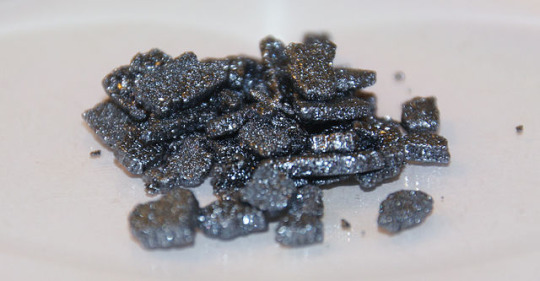
BROMINE:
One of only two elements that are a liquid at room temperature
The only nonmetal element that is a liquid at room temperature
Highly hazardous and can leave scars if spilled on skin. Despite this, it is sometimes added to vegetable oil
IODINE:
used to make the first photographs
Radioactive iodine can cure thyroid cancer
9 notes
·
View notes